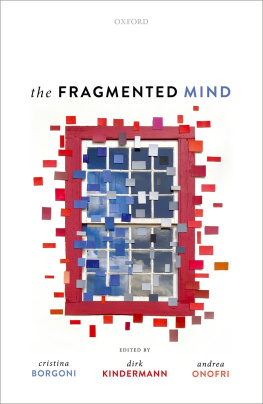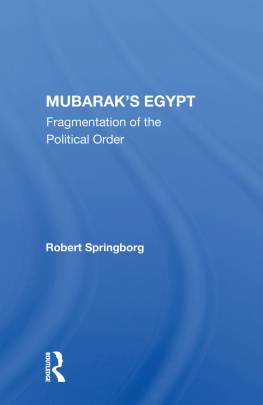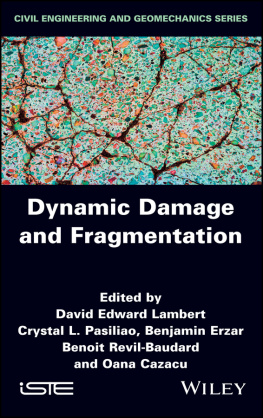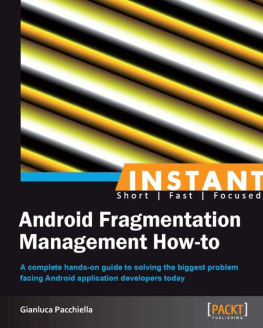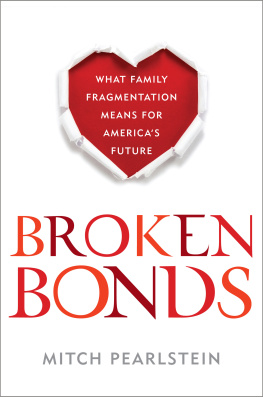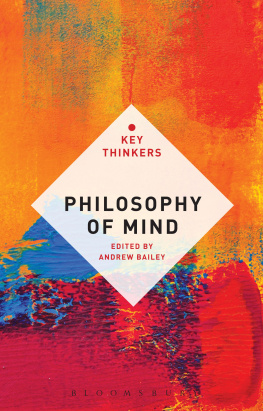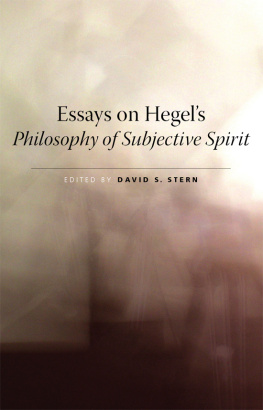The Fragmented Mind

Great Clarendon Street, Oxford, OX2 6DP, United Kingdom
Oxford University Press is a department of the University of Oxford. It furthers the Universitys objective of excellence in research, scholarship, and education by publishing worldwide. Oxford is a registered trade mark of Oxford University Press in the UK and in certain other countries
the several contributors 2021
The moral rights of the authors have been asserted
First Edition published in 2021
Impression: 1
All rights reserved. No part of this publication may be reproduced, stored in a retrieval system, or transmitted, in any form or by any means, without the prior permission in writing of Oxford University Press, or as expressly permitted by law, by licence or under terms agreed with the appropriate reprographics rights organization. Enquiries concerning reproduction outside the scope of the above should be sent to the Rights Department, Oxford University Press, at the address above
You must not circulate this work in any other form and you must impose this same condition on any acquirer
Published in the United States of America by Oxford University Press
198 Madison Avenue, New York, NY 10016, United States of America
British Library Cataloguing in Publication Data
Data available
Library of Congress Control Number: 2021938910
ISBN 9780198850670
ebook ISBN 9780192591067
DOI: 10.1093/oso/9780198850670.001.0001
Printed and bound in the UK by
TJ Books Limited
Links to third party websites are provided by Oxford in good faith and for information only. Oxford disclaims any responsibility for the materials contained in any third party website referenced in this work.
Contents
The Fragmented Mind: An Introduction
Dirk Kindermann and Andrea Onofri
Fragmentation and Information Access
Adam Elga and Agustn Rayo
Fragmentation and Coarse-Grained Content
Daniel Greco
The Fragmentation of Belief
Joseph Bendaa and Eric Mandelbaum
Fragmented Models of Belief
Andy Egan
Rationality in Fragmented Belief Systems
Cristina Borgoni
Fragmented but Rational
Seth Yalcin
Fragmentation and Singular Propositions
Robert Stalnaker
On the Availability of Presuppositions in Conversation
Dirk Kindermann
Belief Fragments and Mental Files
Michael Murez
Implicit Attitudes Are (Probably) Beliefs
Joseph Bendaa
Implicit Bias and the Fragmented Mind
Josefa Toribio
Rational Agency and the Struggle to Believe What Your Reasons Dictate
Brie Gertler
The Pragmatic Metaphysics of Belief
Eric Schwitzgebel
We would like to thank all the authors in this volume for their kind collaboration at every step of its preparation. Thanks to Carolyn Benson, who did a fantastic job proofreading all the chapters. Thanks to Peter Momtchiloff and all of the OUP staff, both for believing in this project and for helping us to make it happen. Andrea Onofri would also like to thank Juan Francisco Ortiz and Erika Torres for their assistance with a number of editorial tasks.
Work on this volume began as part of the research project The Fragmented Mind: Belief, Rationality, and Agency (P27587-G15), which was funded by the FWF (Austrian Science Fund) and was carried out at the University of Graz (Austria). We are grateful to these institutions for their support. We also thank Marian David, who was the Principal Investigator of the project. Finally, thanks to our project collaborators and all the other participants in the project workshopsthis work has benefited greatly from our opportunity to exchange ideas with them.
We are proud to say that this work has been carried out through different time zones and across continents, with mutual help and understanding. We thank all those who personally supported us along this journey.
The editors
The editors names are ordered alphabetically wherever they are listed.
Joseph Bendaa , CUNY (Graduate Center), USA.
Cristina Borgoni , University of Bayreuth, Germany.
Andy Egan , Rutgers University, USA.
Adam Elga , Princeton University, USA.
Brie Gertler , University of Virginia, USA.
Daniel Greco , Yale University, USA.
Dirk Kindermann , University of Vienna, Austria.
Eric Mandelbaum , CUNY (Baruch College and the Graduate Center), USA.
Michael Murez , University of Nantes, France.
Andrea Onofri , Universidad Autnoma de San Luis Potos, Mexico.
Agustn Rayo , MIT, USA.
Franois Recanati , Institut Jean Nicod and Collge de France, France.
Eric Schwitzgebel , UC Riverside, USA.
Robert Stalnaker , MIT, USA.
Josefa Toribio , Catalan Institution for Research and Advanced Studies (ICREA) / University of Barcelona, Spain.
Seth Yalcin , UC Berkeley, USA.
This book is about the hypothesis that the mind is fragmented, or compartmentalized. When it is said that an agents mind is fragmented, it is usually meant that their overall belief state is fragmented. To a first approximation, a belief state can be said to be fragmented if it is divided into several sub-states of the same kind: fragments. Each fragment is consistent and closed under entailment, but the fragments taken together need not make for a consistent and closed overall state. The thesis that the mind is fragmented contrasts with the widespread, if often implicit, assumptioncall it Unitythat the mind is unified, i.e. that an agents overall belief state is consistent and closed under entailment. The motivation for fragmentation comes from a number of places, notably the shortcomings of Unity: the problem of logical omniscience, the problem of inconsistent doxastic states, cases of cognitive dissonance and imperfect information access, and others. In this Introduction, we outline what varieties of fragmentation have in common and what motivates them. We then discuss the relationship between fragmentation and theses about cognitive architecture, introduce two classical theories of fragmentation, and sketch recent developments. Finally, as an overview of the volume, we present some of the open questions about and issues with fragmentation that the contributions to this volume address.
Unity and Fragmentation
Doxastic states like belief and epistemic states like knowledge are standardly assumed to be inherently rational. Much of epistemic logic, Bayesian accounts of human belief, decision theory, and some influential views about rationality proceed from the underlying view that the mindor at least doxastic statesis unified:
Unity
Agents have a unified representation of the world (at time t)a single state of belief organized by two principles:
1. Consistency: The total set of an agents beliefs (at t) is consistent.
2. Closure: The total set of an agents beliefs (at t) is logically closed. That is, agents believe the logical consequences of their beliefs.
Unity may seem to impose unreasonably strong requirements on doxastic states. In the literature, Unityas we call itis often endorsed with one of the following qualifications.
First, Unity is often thought of as part of a descriptive theory of ideal rational agents, not of real agents. Thus, some authors implicitly or explicitly take their analyses to describe suitably idealized versions of real agents. Idealization affords many theoretical advantages, including simplicity in accounting for logical relations among beliefs. None of this entails that the theory applies directly to real agents. An open question here is of course whether real agents are similar enough to these idealized agents for the theory to have any use in the explanation of real agents doxastic attitudes (see Idealization and Explanatory Power below).

